A review of 2 social sharing count tools showing which competitor content types are most popular
Part of the process of defining a content marketing strategy for your business is to evaluate the performance of your competitors’ content marketing and SEO efforts. The insight you can glean from what both direct and indirect competitors are doing will allow you to build a picture of the type of content activity, strategies and tactics that are working for others in your industry and what, as a result, might best work for you. In short, a competitor analysis can tell you:
Traditionally SEOs have reviewed content or 'linkbait' effectiveness using backlink checking tools like Majestic SEO or Moz, but there is now a newer approach based on measuring the number of social shares across the main social networks. In this post I review three relatively new tools which help answer the first question of which content types are most effective for competitors.
Download our Premium Resource – Competitor benchmarking guide
Our 7-step guide will give you all the detail you need to perform a structured analysis of your competitors. It’s designed to be easy to follow with featured definitions and practical tips.
Access the Competitor benchmarking guide and template
There are a number of helpful tools available, each with differing price ranges, pros and cons, to help you to analyse content from across the web. In this post we’re going to look at two free stand-out tools that you can start using today to begin assessing the content performance of your and competitors’ websites:
1. Quick Sprout
Overview: As with many of the best tools available, Neil Patel’s Quick Sprout is an all-round website analysis solution but has a number of very useful features that provide useful insights into how content is performing.
Key features of Quick Sprout
- Great tool for those new to SEO as well as more experienced users.
- Clear, simple and succinct visuals.
- Data can be downloaded as PDF and/or Excel files.
- Provides a series of overview data that can be drilled down to find more detail, e.g.
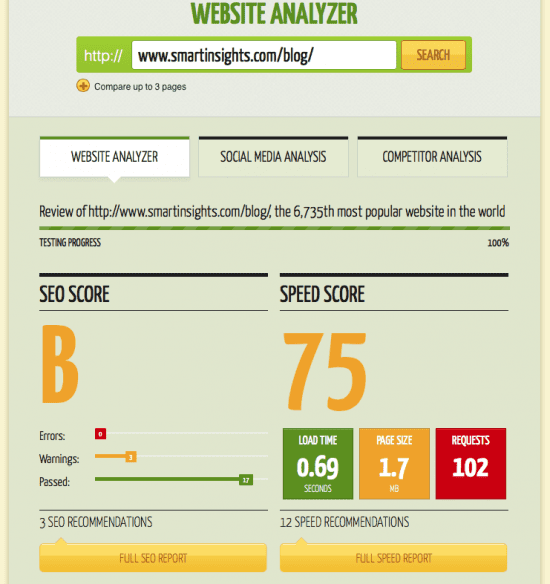
Content analysis covers:
- Speed test
- Top keywords and phrases
- Backlink counter
- Social media analysis offers a comprehensive evaluation of which pages have generated shares on key social networks, including Google+, Facebook, Twitter, Pinterest and LinkedIn:
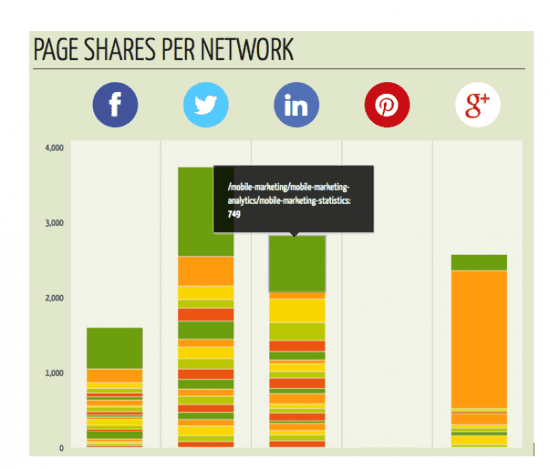
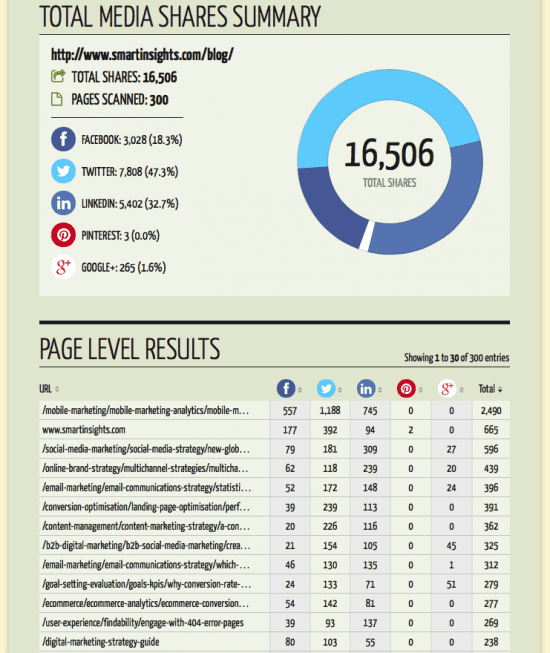
- The competitor analysis feature allows users to evaluate their website against up to three competitor sites:
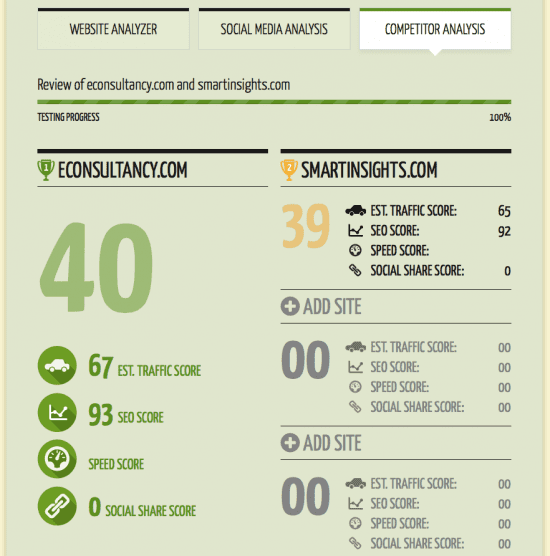
Drawbacks of Quick Sprout
Because the tool provides a holistic view of a site, it’s not designed to specifically evaluate content and content marketing effectiveness alone unlike Socialcrawlytics and BuzzSumo, so some users could get over-awed by the amount of data Quick Sprout provides.
Nevertheless, besides some frustrating limitations with the competitor comparison analysis (which I found to work only intermittently), the fact that Quick Sprout does provide an overall website analysis will certainly be an advantage for those looking to make wider SEO and content changes to their websites.
To really understand how content is performing (beyond simply how much it’s being shared), users need to get a clear view as to how it is being rendered on different devices, how quickly pages are loading and where keywords are being neglected, all valuable data that Quick Sprout delivers.
2. BuzzSumo
Overview: Whilst BuzzSumo provides much of the functionality offered by Socialcrawlytics and Quick Sprout, the tool’s simplicity, ease of use and speedy performance means it still offers some really useful insights for those looking for a quick snapshot of how a website or web page’s content is performing across multiple social channels.
Key features of BuzzSumo
- The opening page offers a really quick, handy guided tour of how the tool works.
- Provides a clear, simple snapshot of social performance of different pages within a domain:
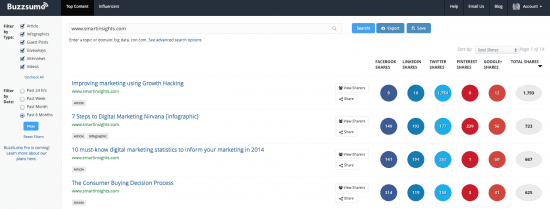
- Users can also search by topic.
- Data is easily filtered by content type and date.
- Provides detail about the Twitter users who have shared the content, all of whom can be sorted by page authority or followers, and filtered further by ‘bloggers’, ‘influencers’, ‘companies’, ‘journalists’ and ‘regular people’.

- Search for key influencers by topic or keyword.
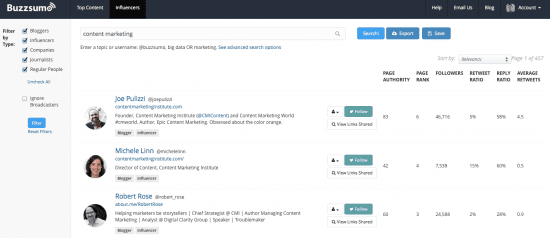
- Searched can be saved and data exported to CSV or Excel files.
Drawbacks
In comparison to Socialcrawlytics and Quick Sprout, BuzzSumo is limited in that it only offers users data for five social networks and doesn’t provide anywhere near the depth of insight that the other two tools offer. It would also be good to see BuzzSumo offer extra detail on who shared data from other social networks (although obviously this may be limited based on the each user and social network’s privacy settings).
However, the current benefits and features of BuzzSumo far outweigh the negatives and besides there’s a ‘pro’ version in the pipeline that may well solve some of the drawbacks referenced above.












